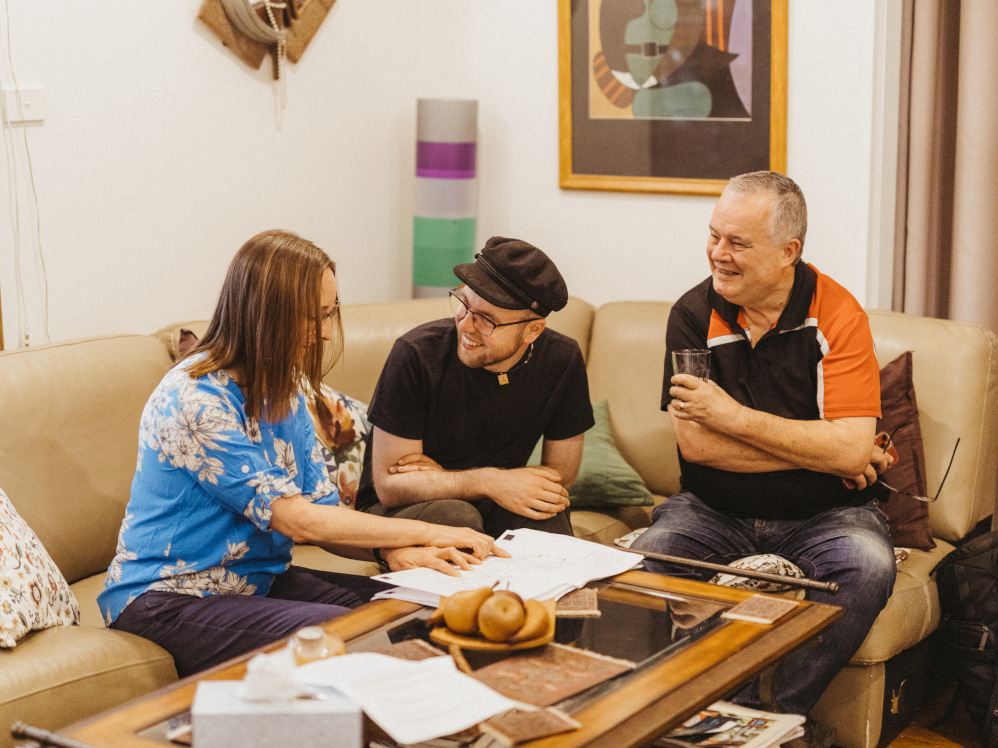Today is the International Day of Persons with Disabilities. You may be a fan of these international days, or you may not be, but let’s use this day to think about church, Christians and disability.
I am a very different person because I am a parent of a person with a disability. Undoubtedly a better Christian, too.
I have learned that simple faith can be the strongest. I have learned that courage comes in different packages.
And there are many Christians who parent and foster people with a disability. If you think about it being pro-life comes with the responsibility to take on a harder parenting task if it comes your way.
For us, it was after birth, not before that we noticed that things might be different. And by pre-school we knew that our child would be herself, not exactly the same as others.
When I first held her, I promised commitment, that I would always be there for her. It is a sacred promise that God has helped me keep.
Fast forward to a highlight day when she was part of a confirmation – in our Anglican church when children are bapitised young it is the time when they step up to declare their own faith in Jesus. there young people with an intellectual disability were in the group at the front of church that day,
They made the same promises. They proclaimed the same faith They had the same saviour. They will one day share the same heaven.
On that day, living with an intellectual disability or not living with disability made no difference. It was a taste of the diversity of heaven.
But not every day is like that. Church can be challenging, for people with autism or other neurodiversity.. Especially during the teenage years – a time when tolerance of difference is at an all-time low.
This means that despite the advent of the NDIS, there’s still an opportunity for Christian involvement in disability. No matter how much the government will fund – and the NDIS is very welcome – there are needs that individuals need to meet. And friendship – and time – to share the life of others is key.
This gives churches a great opportunity.
This is the dream that Kirk and Lias Patston shared with The Other Cheek recently. Their ambitious plan is to grow a series of houses, given the NDIS rules of likely three residents who will share their home life with a “neighbour” who will live with them. Some houses will need nighttime staff as well, depending on who lives there. they have set up Hope Christian Homes to buy, renovate and build houses that fit the plan. They are starting in Springwood, with a house that will be home to their son Jerrah, two other young men and their “neighbour.”
Some readers will recognise it as similar to the “L’Arche” model in which “house assistants” live with residents. L’Arche founded by a now-fallen hero Jean Vanier, has formed communities of grace and hope around the world.
The formula for Hope Christian Homes has a local ingredient. Each home will be within walking distance of a church or churches. Hope Christian homes has a sibling, Our Place Christian Communities, that will nurture communities and help churches become places of welcome. the local church is an essential part of the Hope Christian homes model. It won’t just be the families of residents who need to be brave, it will be whole churches that will be asked to rise to the challenge.
I met Jerrah because I saw him at Special Olympics cricket. That’s another place that celebrates people living with a disability.
At some churches, the Jesus Club ministry provides a place of welcome. People who I have met at Special Olympics have connected to my church through that club. It is a ministry that any church could start, and it is guaranteed to fill a gaping hole in the lives of people in your town or suburb.
My daughter is now living independently, quite happily. There’s no one solution that fits everyone. But many, most, of the people I have met in encountering the neurodiverse community, do need a special place to live, with support, like Jerrah. And all of them need somewhere that works for them when their parents are no longer able to cope – the cruel dilemma that persuaded ALP Minister John della Bosca to lobby for what became the NDIS.
Kirk Patston told me that people living with disability offer the church a blessing. I think he’s right.
“Because what you’re discovering in people with disabilities is all kinds of gifts that you didn’t realise where they are. And in your relationships with those people with disability, they’re going to call forth the new aspects of your faith and your character that you perhaps haven’t had a need to draw on. So it’s going to be, I think, in the end, a mutually blessing experience.
“I also think that Australian churches at the moment need to show the world that we are The people who do good and do justice, that we are places of goodness and beauty and truth. And there are actually few places in the world where we feel we can just leave Jerrah without a support worker. But church is one of them. And for us, that’s amazing.”
Read more about Kirk, Lisa and Jerrah here.
Image: Jerrah Patston (centre) looking at plans with board members of Hope Christian Homes Used with permission

